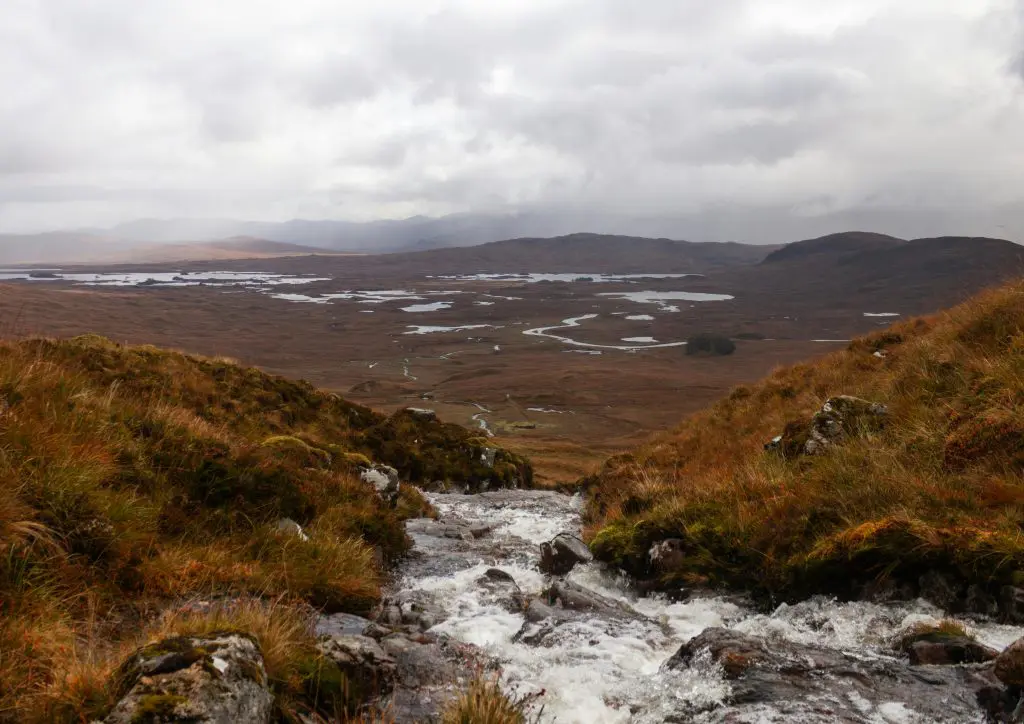
Peatlands are one of Ireland’s most important natural ecosystems, providing vital services such as carbon storage, water regulation, biodiversity support, and cultural heritage. However, a major new research study, commissioned by the Environmental Protection Agency (EPA) and led by University College Dublin (UCD), warns that without long-term funding and clear policy direction, the health and […]
Peatlands are one of Ireland’s most important natural ecosystems, providing vital services such as carbon storage, water regulation, biodiversity support, and cultural heritage. However, a major new research study, commissioned by the Environmental Protection Agency (EPA) and led by University College Dublin (UCD), warns that without long-term funding and clear policy direction, the health and sustainability of Irish peatlands remain at risk.
Healthy peatlands provide a range of ecosystem services:
As Ireland seeks to meet its national and EU targets on climate, biodiversity, soil, and water, protecting and restoring peatlands is essential.
Ireland holds a disproportionately high share of Europe’s peatlands, making it a critical actor in global peatland conservation efforts. Though small in landmass, Ireland’s peatlands represent a significant store of soil carbon and biodiversity, making their protection essential for achieving both EU Green Deal goals and global climate targets under the Paris Agreement and the UN Decade on Ecosystem Restoration.
By synthesising over 20 years of research and producing a policy roadmap, the Peat Hub Ireland (PHI) project places Ireland at the forefront of science-based restoration efforts. The project also positions Ireland to contribute meaningfully to international forums focused on climate adaptation, biodiversity conservation, and sustainable land use.
The Peat Hub Ireland (PHI) project synthesised over 20 years (2000–2023) of Irish peatland research to support sustainable peatland management. This involved reviewing peer-reviewed literature, grey literature, and expert stakeholder knowledge to provide a comprehensive overview of what’s known, what’s missing, and what’s needed.
The PHI project outlines four pillars for future peatland policy and practice:
These recommendations are designed to support evidence-based decisions, enhance cross-sector cooperation, and provide financial and practical support to communities living near peatlands.
The report highlights the importance of recurrent funding for:
Such schemes would allow businesses, individuals, and organisations to invest directly in land management and restoration, helping to scale up national efforts to meet climate and biodiversity goals.
One emerging solution for balancing land use and restoration is paludiculture, the cultivation of crops on rewetted peat soils. Rather than abandoning drained lands entirely, farmers can shift to producing commercially viable wetland crops such as:
Adopting paludiculture could provide economic continuity for farmers, reduce emissions from degraded bogs, and retain rural population levels. However, to scale up, it will require investment in research, market development, and training support.
The PHI project produced several open-access tools for stakeholders:
These resources aim to empower communities, researchers, and NGOs by making scientific knowledge more accessible and practical.
Ireland’s peatlands are at a tipping point. Without strategic investment and inclusive policies, the potential benefits of peatlands, from carbon savings to cultural heritage, could be lost. The study urges the government to create a long-term national management plan, backed by financial frameworks that support both designated and non-designated peatlands.
The future of Irish peatlands depends on how quickly and effectively we act. This EPA-supported research provides a roadmap for action, underpinned by science and built on two decades of Irish expertise. Long-term funding, community engagement, and accountable governance are essential to secure the ecological, climate, and social value of these critical ecosystems.
Together, we can ensure that Ireland’s peatlands continue to thrive as climate allies, biodiversity reservoirs, and cultural landscapes for generations to come.
At All-Ireland Sustainability, we’re committed to building a greener, fairer island, together. Stay informed on the latest environmental initiatives, community action, and policy developments shaping sustainability across Ireland, North and South.
👉 Sign up for our newsletter today and be the first to hear about upcoming events, expert insights, and ways to get involved.
Whether you’re a seasoned advocate or just starting your journey, new members are always welcome.
Subscribe now and be part of the All-Ireland Sustainability Membership.